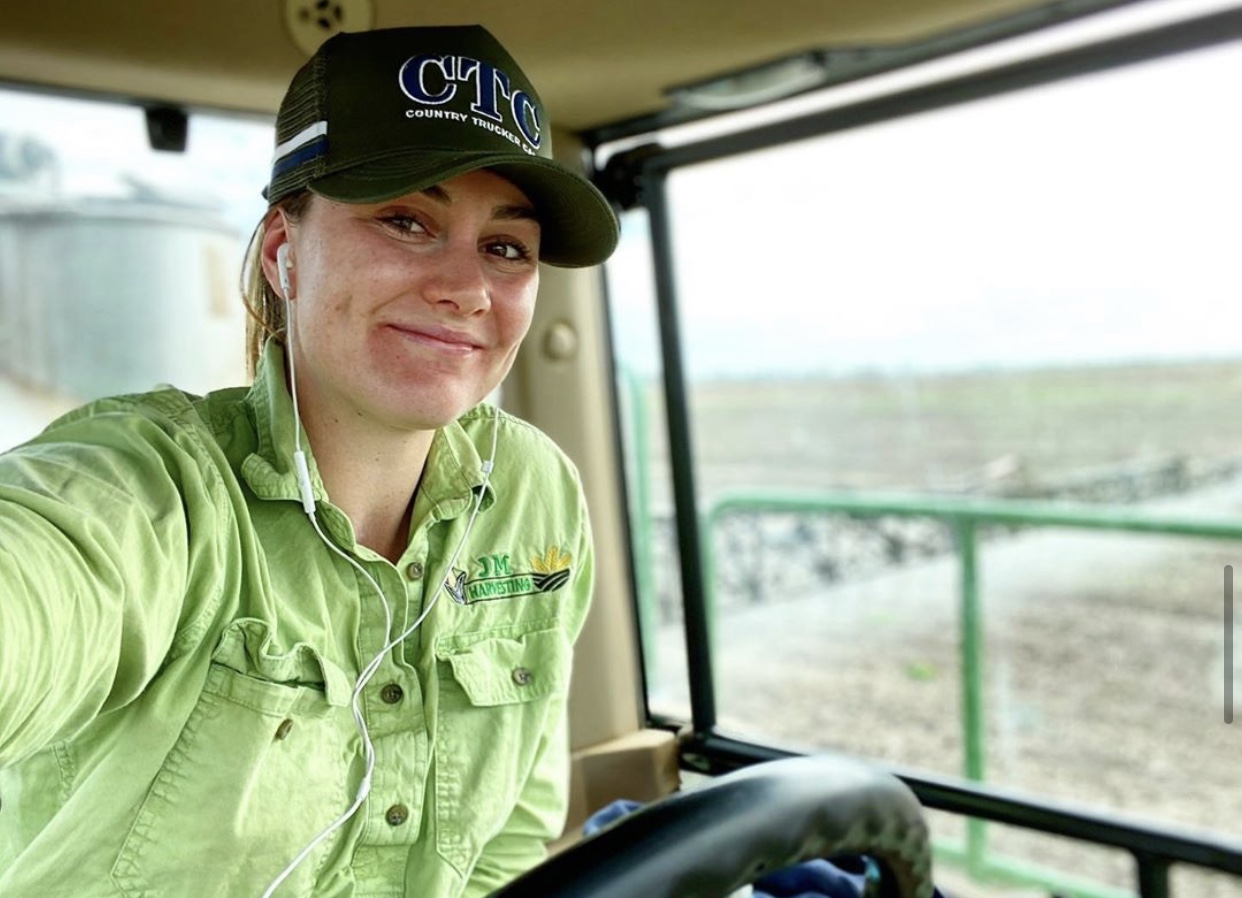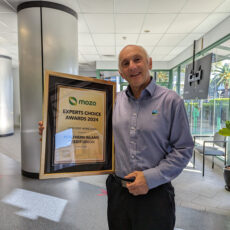The Floodplain Harvesting Exemption Regulation was disallowed in the NSW Legislative Council on September 22.
A move the NSW Irrigators’ Council has described as “a big step backwards for water management.”
“This regulation is just a step towards finally licensing and better metering floodplain harvesting – how could that be a bad thing?” said NSW Irrigators’ Council chief executive Claire Miller.
Members of the Legislative Council voted 22–16 in favour of disallowing the regulation.
“The Shooters have once again taken aim at NSW communities by partnering with Labor and the Greens to ensure that politics triumphs over sensible regulation of floodplain harvesting in NSW,” said a statement released by the state’s Water Minister Melinda Pavey.
“The Water Management (General) Amendment (Exemptions for Floodplain Harvesting) Regulation 2020 ….was disallowed in the Upper House with the Shooters, Labor, One Nation and the Greens voting against better management of water take in NSW,” said Mrs Pavey.
“We have the Shooters Member for Murray at the throat of the Member for Barwon’s community, desperate to strip what water they have left off them,” Mrs Pavey said.
Mrs Pavey said the regulation, alongside the floodplain harvesting policy, provides a clear framework that outlines the Government’s intention for floodplain harvesting licensing for water users and for the water regulator, the Natural Resources Access Regulator.
“It provides clear, enforceable rules that apply until licensing is in place which will reduce – not increase – the capability to harvest floodplain water in the Northern Basin,” Mrs Pavey said.
“The original Water Sharing Plans developed back in 2004 under the former Labor Government made it clear that floodplain harvesting was to be brought into the licensing regime within five years – this didn’t occur.
“Now that we are finishing the job and bringing floodplain harvesting into the licensing regime it is incredibly disappointing to see the Labor Party abandon their previous support.”
Mrs Pavey said the Murray Darling Basin Plan brought in a sustainable diversion limit, which caps the amount of water that can be extracted for productive purposes. She said floodplain harvesting regulations do not change these diversion limits.
“Contrary to what the Member for Murray and her supporters are telling her constituents, banning floodplain harvesting does not mean that water will flow to them. Instead, water historically taken from floodplains could be legally taken from rivers and creeks,” Mrs Pavey said.
“We are taking steps to ensure that floodplain harvesting in the Northern Basin does not exceed its legal limits under the Murray Darling Basin Plan.
“More than $15 million has been invested in improved data collection and modeling to implement the Policy. This work is cutting-edge in terms of modeling and measurement and will support the effective regulation of floodplain harvesting.”
However, Member for Barwon Roy Butler said Mrs Pavey’s criticisms were just the National party trying to ‘stir up conflict’ and distract away from their own party problems.
“It’s just politicising,” said Mr Butler who supported his party, the Shooters Fishers and Farmer’s decision to vote in favour of the disallowance motion.
“The disallowance was only about the February regulation, it doesn’t change the 2000 Water Management Act – none of that changes,” said Mr Butler.
“What the government has tried to do is shortcut something that should have been done properly.”
Mr Butler said he is supportive of lawful activity including floodplain harvesting but he wants “to modernise the way floodplain harvesting is regulated and bring it into the Water Sharing Plan to end the conflict between people in different parts of the Murray Darling Basin”.
“The regulation was a band-aid approach to a 20-year old problem,” said Mr Butler.
“It has been 20 years that successive Governments have failed to adequately regulate floodplain harvesting.
“This creates uncertainty for communities, the environment and agriculture.
“I understand FPH to be legal under what remains of the Water Act 1912.
“The lack of regulation coupled with long-term inaction by Government has allowed rumours and conflict between farmers and communities up and down rivers to thrive – we need to stop that.
“These criticisms take a toll on the wellbeing of people in the north almost all of whom operate to the rules they are given.
“The 1912 Act did account for the water needs of others, the 2000 Water Management Act does, but only when all forms of take are in a Water Sharing Plan.
“This transition has been documented in every WSP, but since 2000, Governments have failed to progress it,” said Mr Butler.
“To shut down the criticism, and provide certainty to communities, environment and farmers, Government will now have to expedite the transition of FPH into WSPs.
“The band-aid approach of poor regulation has been ripped off.
“This will mean all forms of take will be metered and demonstrated to be within Sustainable Diversion Limit or CAP, and the accusations and wild numbers can stop.”
NSW Irrigators’ Council said the disallowance was a step backwards.
“Disallowance doesn’t make floodplain harvesting illegal, it just leaves it under old-fashioned legislation passed in 1912, 50 years before the first cotton crop was picked in NSW”.
NSW Irrigators’ Council chief executive Claire Miller said the Floodplain Harvesting Exemption Regulation, disallowed in the Legislative Council, was a transitional step towards implementing the NSW Healthy Floodplains Policy to license and meter approved floodplain harvesting by July 2021.
“We want full licensing and metering for floodplain harvesting as soon as possible. This regulation is a step on the way – July 1 2021 can’t come fast enough to put an end to the confusion.”
Ms Miller said the regulation is a transitional measure to bring the regulation of floodplain harvesting out of the 1912 Water Act, and into the more recent Water Management Act 2000.
“It is not as simple as making it legal or illegal. The debate is about two options: leaving floodplain harvesting allowed under an Act written in 1912, or taking the next step to regulating all water take under modern laws.
“Irrigated agriculture wants a modern legislative framework. We don’t understand politicians who want water management turned back to 1912 legislation. It’s almost like they don’t want the problem solved.”
Licensing and regulation will limit water take, including floodplain harvesting, to the lower of the 1993-94 Cap or Long Term Annual Average Extraction Levels (LTAAEL) under NSW water sharing plans, according to the NSWIC.
“NSWIC told the Parliamentary Inquiry we need change to better regulate floodplain harvesting under modern rules, and now the rules are here, but some politicians aren’t prepared to accept change,” said Ms Miller.
Namoi Water, the peak industry group for irrigated agriculture in the Namoi Valley, echoed the views of NSWIC.
“The disallowance of the regulation does not make floodplain harvesting illegal,” said Namoi Water executive officer Shaine Baker.
“It means we have a disjointed framework, with licences under the Water Management Act 2000 and transitional provisions allowing access under the Water Act 1912 until licences are issued.
Ms Baker said floodplain harvesting occurs “right across NSW” and described it as the impoundment of water on a designated floodplain.
“The regulation proposed to combine all the management frameworks – work approvals, licences, access conditions, exemptions – under the Water Management Act 2000,” said Ms Baker.
“For the past five years farmers in the Namoi have worked with the NSW Government under the Healthy Floodplains project to finalise this process to bring all access under the newer Act,” said Ms Baker.
“All disallowing the regulation does is continue the previous approach used under the Water Act 1912 until floodplain harvesting licences are issued. All floodworks require a licence and are limited by pump capacity or infrastructure size.”
To order photos from this page click here




